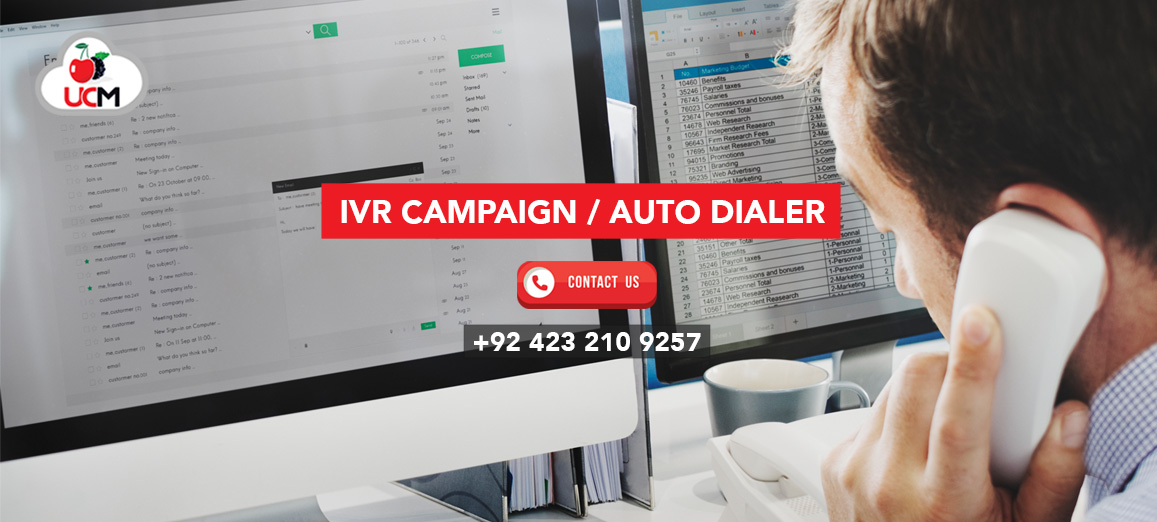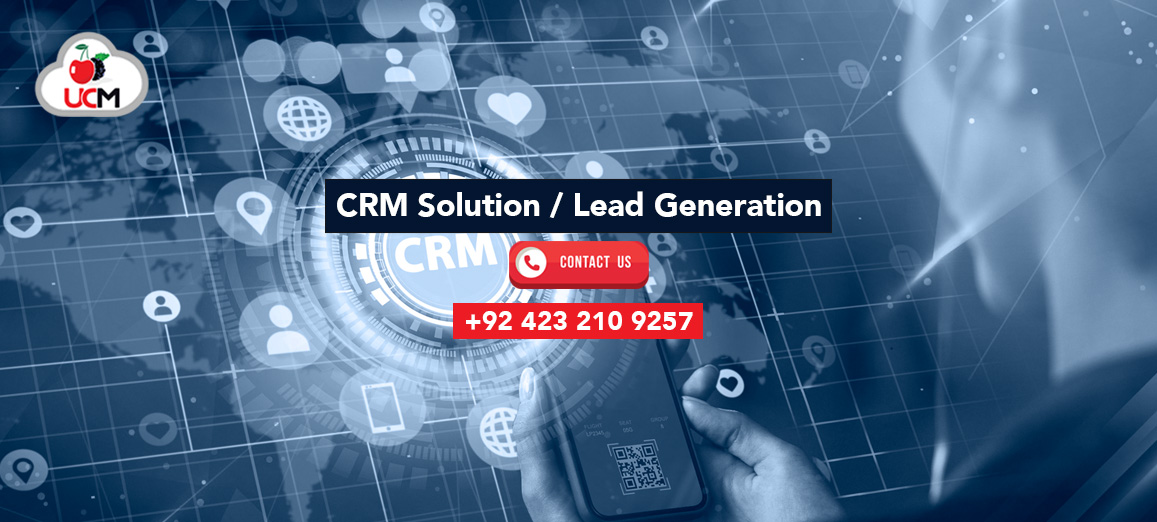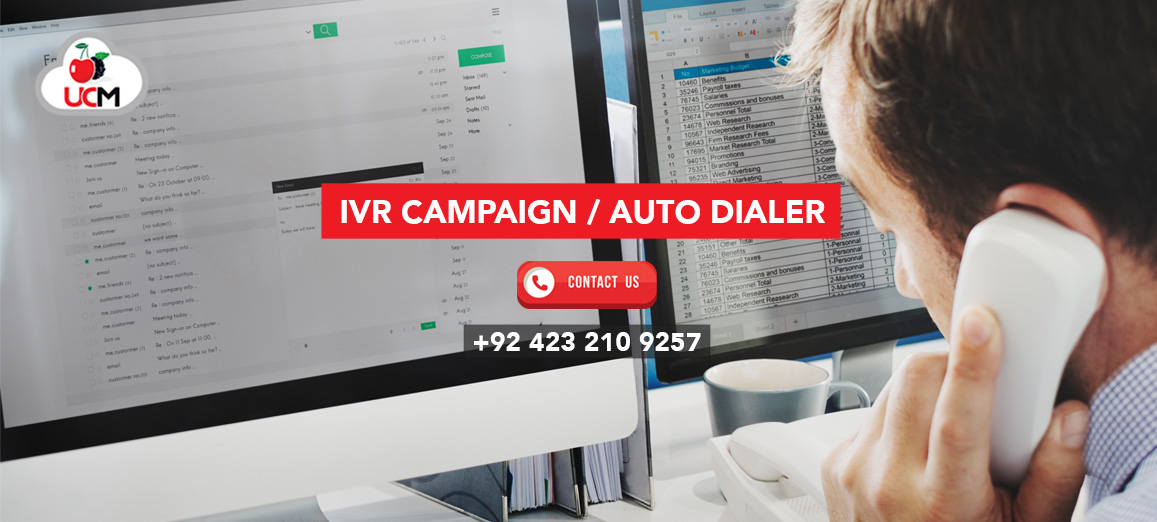Transform Customer Experience with Call Centers Software
Call Centers Software: Importance of Communication over Phone
Talking to customers on call is more difficult than using other modes of communication because your agent’s answer should be right and there is no chance to pause between calls until you place your customer on hold. Moreover, accessing the call history of a customer during a call can divert your agent’s attention from the context of the conversation. At that time, Call Centers Software can streamline the process of communication with customers over the phone, email, SMS text, live chat and instant messaging. It allows you to manage your inbound and outbound calling processes efficiently and ensure personalized interactions. Let’s explore the way a call center solution is beneficial for your business.
Inbound vs Outbound Calls – What’s the Difference
The major work of an inbound agent is to wait for the customer calls to come instead of actively initiating calls. These call centers usually manage customer service-related queries such as technical support, order placing, product assistance etc. This is why inbound call center agents have to quickly provide solutions to customer requests and problems. On the other hand, an outbound call center agent has a list of leads and prospects to contact. They usually use customer relationship management software to track customer details and manage customer interactions. The software, particularly designed for call centers, automates all the call processes and provides customer information to the right agent to enhance overall call center productivity and efficiency.
Ways to Improve Customer Service with a Call Center Software
1. Ensure Call Resolution and Consistency with Call Routing
By assigning calls to the right agent, call centers can resolve their customers’ issues sooner. In this way, your customers can help more customers in a day and keep them satisfied. A cloud-based call center can ensure efficiency and consistency without the need for additional hardware.
2. IVR Technology
Even though call centers have automated their call processes or appointed more agents, still it is highly difficult to personally answer each call. Interactive voice response is an effective way to manage incoming calls efficiently. Your customers can easily find answers to their queries through simple commands without talking to a live agent.
3. Access to Real-Time Caller Data
According to a source, call center agents spend 11% of their time getting the required information about managing customer interactions efficiently. Agents have very little time to prepare for the calls of a high-priority customer or the one evaluating their product. Call Centers Software, integrated with CRM, allows agents to see customer information like sales history to create a better customer experience.
4. Allow Creating Better Customer Relationships
Customers feel annoyed to repeat information every time they call to let agents understand their problem. A call center system keeps a record of a customer’s previous conversation with the company and the information of the agent. This way, your agents can spend more time building meaningful customer connections.
5. Promote Collaborative Work Environment
Customer issues have extended to various departments so with contact center software, companies can ensure the collaboration between departments and teams across their business. It helps all within an organization to stay on the same page about customer service.
Final Words
As Call Centers Software technology has continued to grow in functionality and popularity, it is also important to get desired outcomes that meet your unique business goals. This technology is a cost-effective solution for businesses looking to enhance efficiency in customer dealing and agent productivity. By consulting with a specialized service provider like Cherry Berry UCM, companies can manage their communication efficiently. Call us today to learn more the ways about better call center management.
What is IVR Call Center Software?
Why Your Call Center Needs an IVR Call Center Software?
Interactive voice response is a telephonic software that has become a necessity for today’s call centers. This technology empowers businesses to interact with their customers through automated menus and enables callers to self-serve for quick resolution of their issues. IVR system greets the callers in a recorded voice and presents them with various menu options. In case, a caller needs to talk with a live agent, it transfers calls to the most relevant agent. Customers respond to the IVR system by pressing different keys on the phone keypad. IVR Call Center Software enhances the efficiency of a call center and reduces labor costs. These systems can manage thousands of dialed numbers with unique greetings and menu options. The wise use of IVR technology impacts call center business positively. Let’s learn more about what is interactive voice response (IVR) and its features.
IVR Technology – Why It is Important?
Interactive voice response systems allow your customer support teams to meet their customers’ growing expectations. It increases your first-call resolution rate and customer satisfaction level on your services. This cost-effective solution also reduces the call centers costs and enhances efficiency because your customers don’t have to answer repetitive requests. Your agents can spend their time handling more complex questions. Customers can use IVR technology round-the-clock as customer self-service without waiting for agents. Shortly, IVR systems are an effective way to get satisfied and loyal customers without connecting to human agents. Moreover, self-service also reduces labor costs while intelligent routing allows the creation of a better customer service experience. IVR systems can manage multiple branches of a call center from different locations. They are also helpful for businesses that use different numbers for different purposes like sales and services.

Significant Features of IVR to Consider
1. Call Routing & Transferring
An IVR system ensures that customer calls are routed to the right agent to resolve their queries efficiently. Likewise, call prioritization features allow you to set your IVR system to prefer important callers over others based on specific criteria. For instance, from a queue, this technology will move the most valuable customers up.
2. CRM Integration
The integration of other business apps enhances the efficiency of IVR systems as they can process orders and collect payments without a human agent. However, companies should invest in the IVR system that can securely integrate with CRM and other software.
3. Call Recording & Monitoring
If you have ever interacted with an IVR digital voice you may have heard it saying ‘Your call may be recorded for quality assurance’. It is a polite and standard way to get customers notified about the intentions of recording calls. Companies can record voices for quality enhancement, train new staff and learn about customer issues.
Advantages of IVR Systems
- This technology allows customers to resolve their common queries even during close business hours or in case of agent unavailability.
- A well-organized IVR system ensures the routing of customer calls to the most relevant agent or department. It increases the first-contact ratio and reduces wait times.
- The availability of pre-recorded answers helps companies keep their operating cost lower. Through call recordings, they can assess the quality of services and make informed decisions.
- By integrating various business applications with IVR Call Center Software, businesses can enhance the efficiency of their call-related processes.

Final Thoughts
Indeed, IVR Call Center Software has a great role in creating the first interaction with a business. It increases first-call resolution and improves customer experience. This system improves your agent’s productivity and ensures the provision of round-the-clock service. Enhance the quality of customer service to keep your customer satisfied with the help of a reliable service provider like Cherry Berry UCM. Call us today to take your call center business to new heights.
Collaborate with A Virtual Call Center Provider to Boost Efficiency
Virtual Call Center Provider: An Effective Way to Manage Call Center Processes
In today’s digital world of email and chatbots, you may think that customers may rarely contact businesses through calls. However, it is not so because phone calls are still the most common mode of communication for customers to resolve their issues with a company. As customers are the most important asset of a company and a company’s success depends on happy and satisfied customers, it is important for businesses to increase their capacity to manage incoming and outgoing calls efficiently. In other words, companies should consider investing in hiring a Virtual Call Center Provider to manage their business call center operations efficiently. Let’s learn more about how outsourcing call center services can prove beneficial for your business.
What is a Virtual Call Center?
In a call center that operates virtually, agents do not work from the same time zone or a centralized location. They manage inbound and outbound calls from any location remotely. All the call center agents have access to call center technology and features hosted in the cloud. Companies can unify all their remote employees and offices into one system through call center software. With it, contact center administration can also monitor their team performance and ensure the quality of services. They can also keep all their teams on one page through different communication channels and VoIP solutions. Moreover, virtual call centers are really effective for small businesses because they don’t have to pay infrastructure, agents, and equipment costs.
How Does Virtual Contact Center Work?
A Virtual Call Center Provider uses VoIP or cloud-based software to ensure communication between employees from all over the world. When customers call a business or send an email for technical assistance, they connect with the agents working remotely. These agents have access to all necessary tools and technology needed to manage customer complaints, inquiries and other issues. The cloud-based call center software enables agents to access call scripts, customer data and other important information to provide efficient customer service. In this way, they can manage inbound and outbound calls efficiently. Meanwhile, call center administration can measure call center performance through reporting and analytics features. Additionally, call routing, call recording and IVR features ensure efficient collection of customer data and efficient management of calls.
Benefits of Virtual Contact Centers
1. Access to Experienced Agents
Companies can hire the services of virtual contact centers of different time zones to ensure round-the-clock service. These service providers have talented and professional agents experts in managing customer service issues efficiently. By hiring experts means to ensure the provision of quality services to your customers.
2. Maintenance-Free Solution
When companies outsource their call center operations to expert service providers, they don’t have to pay upfront costs. These service providers bear all the expenses of hardware, software, team training and maintenance costs. Moreover, cloud-based systems also lower the upfront costs.
3. Allow Instant Interaction With Customers
Call center technology can reduce your customer waiting time through smart routing features. Through this call center solution, your agent can send follow-up emails and text messages without moving to other software. In this way, your agents can manage calls efficiently, effortlessly and fearlessly.
4. Ensure Team Management
Virtual call center software allows companies to track their employee’s performance in real-time and make data-driven decisions. They can get valuable insights with detailed reporting to pinpoint the areas that need improvement. Moreover, call center software serves as a central hub for unified communication to keep your all team on one page.
Conclusion
Indeed, partnering with a reliable Virtual Call Center Provider such as Cherry Berry UCM is an effective way to enhance the efficiency of customer-oriented processes. Through cloud-based technology, businesses can easily manage their call center operation remotely or can collaborate with a service provider to reduce costs and achieve scalability. Contact us today to improve your customer interaction.
Here’s Why Auto Dialer Software for Call Center is Important
What is Auto Dialer Software for Call Center?
Businesses all across the globe are struggling hard to maintain good relationships with their existing, new and potential customers for different reasons like product promotion, customer service support, market surveys and much more. In inbound and outbound call centers, an agent speaks up with the customers to address their issues efficiently or to make outbound sales. Auto Dialer Software for Call Center is a cloud-based technology designed to automatically dial contact numbers and initiate the call as soon as the previous call ends. Today, these dialers have become an integral part of outbound call centers to reduce the agent’s idle time and increase productivity. Besides this, this technology ensures workforce management and streamlines call-related processes. Let’s have a look at different types of auto-dialers and their differences.
Types of Dialers – What’s the Difference
Though different types of auto dialers are available in the market, all of them are designed to reach customers easily. That is why it is important for businesses to choose the right dialer to meet their call center needs. For instance, auto-dialers automate the process of dialing numbers to make sales calls, appointment settings and more. They also empower your agents to spend their time improving conversations with customers and less time dialing numbers. Here are a few other types of dialers available in the market.
1. Power Dialer
This dialer follows the ‘one call at a time’ rule as it dials the next number from the contact list after the completion of the previous call. Power dialers are suitable for companies having a low call volume or for enterprises that prioritize quality of services over productivity. However, your sales agent may have to wait in between calls which increases idle time.
2. Preview Dialer
With a preview dialer, agents can manage their calls quickly and get prepared for the next call. They can see the next caller’s information before and during the call to offer personalized interaction. Additionally, call center agents don’t have any hassle of dialing phone numbers manually so they can spend more time on calls. Such dialers are really helpful in managing complex sales interactions. This is because they offer an overview of customers’ previous history and contact information.
3. Progressive Dialer
It automates the process of dialling numbers in outbound phone calls to free up agents’ fatigue and the hassle of dialing numbers manually. This technology serves as a middle ground between predictive dialing and manual dialing processes. Several technologies in this dialer allow automatic calling like automatic call distribution, interactive voice response and more. Progressive dialers also allow call center agents to initiate calls automatically without manual dialing and focus only on customer service.
4. Predictive Dialer
This advanced outbound calling system uses machine learning algorithms to enhance call center efficiency. It can predict the availability of human agents for the next call. Its ability to forecast the response time of a call sets it apart from other types of dialers. It also ensures your agents only answer those calls answered by customers, not the ones that go unanswered. This results in less idle time and decreases the likelihood of losing leads.
Final Thoughts
Auto Dialer Software for Call Center speeds up your outbound calling processes and enhances your agent efficiency. Different auto dialers allow agents and sales teams to focus on more important tasks and increase sales conversion. With these solutions, companies can also drastically reduce the chances of missing out on potential leads. Meanwhile, call center administration can keep an eye on their agent’s performance through call recordings and ensure the provision of quality services. Contact Cherry Berry UCM today to achieve your outbound calling goals successfully and run outbound marketing campaigns efficiently.
Inbound and Outbound Calls: What Makes Them Different?
What are Inbound and Outbound Calls?
Today, call centers have become an integral part of any business to manage customer issues and meet the company’s goals efficiently. Most companies have to manage a large volume of Inbound and Outbound Calls to satisfy existing customers or attract new ones. For that reason, call centers are considered the backbone of good customer service but inbound call centers are different from outbound call centers. For instance, inbound call centers deal with incoming customer calls for service inquiries, technical assistance or upgradation of services. Conversely, outbound agents initiate calls to customers for telemarketing, market surveys, lead generation and more. You should choose wisely which one is better for your business to achieve your business needs effectively. Keep reading to explore the difference between inbound and outbound call centers and the most suitable option for your business.
Why are Inbound Call Centers Important?
As the name suggests, inbound call centers manage mainly inbound calls that tend to be customer service-based and focus on answering customers’ concerns and complaints. It is necessary for the agents working in these call centers to be helpful, polite and well-familiar with the company regulations. This type of call center tends to fall into four types:
1. Customer Service
In the first category, existing customers call a business having some concerns and questions in their minds. For instance, they may want to inquire about payments, returns, customer feedback, updates of email addresses, queries regarding your company policies and more.
2. Technical Support
This is when a company’s service may not function properly and customers place calls to resolve their issues. To manage technical support issues, call centers need staff that has a high level of patience to deal with customers’ demands and complaints. The right team with a cool temperament restores brand loyalty.
3. Inbound Sales
Sometimes, inbound call center agents also receive calls from prospective buyers looking for information about your brand. This inbound sales call is a great opportunity for your staff to maximize productivity. This is because a polite and welcoming face can convert leads into customers.
4. Upgrade & Renewal
In this form of inbound communication, your agents have to deal with existing customers who want to upgrade or renew their service plan. It also means that customers want to continue their journey with your services. Inbound agents should have deep knowledge of a business product line and the advantages of upgrading or renewal services.
What Outbound Call Centers Offers?
Outbound call centers tend to initiate calls to customers rather than receive incoming calls. Outbound calls aim to reach out to leads and prospects, market the company’s product, and earn sales. When it comes to inbound and outbound calls, the first type of call centers focuses on improving customer retention, offering excellent customer service experience and building customer loyalty. In contrast, outbound call centers work to deepen your leads’ interest to move them forward in the sales funnel. Cold Calls and warm calls are two categories of outbound calls. Agents place cold calls to those potential customers who are not expecting the calls. Meanwhile, warm calls are the outcomes of previous interactions with prospects and leads. Here are other types of outbound calls.
1. Appointment & Market Research
It is when your agents schedule appointments after confirming the most suitable time and date for the meeting. Moreover, sometimes some companies also hire outbound call center services for market research to learn about the trends and preferences of the target audience. This data allows businesses to adjust their marketing strategies according to customer needs.
2. Lead Generation
Outbound agents also collect leads and prospect information through warm and cold calls. In this way, they determine the likelihood of a lead into loyal customers and a lead’s interest in a company’s product and services. Your agents can convince leads interested in your products and can help them turn into loyal customers. This, in turn, will drive more revenue for your business.
3. Telemarketing & Telesales
In this outbound calling method, your sales agents market their products over the calls based on the provided target list. They create an individual’s interest in the services or products by telling leads how their product best suits their needs. Conversely, telesales have a different end goal in mind which is closing sales.
Where Does the Difference Lies?
1. In Purpose
The main purpose of any call center is happy and satisfied customers but the way of achieving this feat is different. For instance, inbound agents deal with customers who have some doubts, complaints, questions or suggestions. Contrary to this, outbound call center agents contact the customers for sales, appointment reminders, promotions or market surveys.
2. In Technology
Inbound call center needs call monitoring, call control features like transfer, mute or hold, and ticketing integration. On the other hand, outbound call centers need CRM integration, auto-dialers and IVR. The use of these technologies makes both types of call centers different.
3. In Terms of Business Challenges
Both inbound and outbound calls have different impacts on a business. For instance, the performance of the outbound call centers measures on high conversion rate of leads. Contrary to this, customer satisfaction and resolution speed are factors that determine inbound call center efficiency.
4. In Agent Training
In inbound call centers, inbound agents should have company and service information at their fingertips to offer the best customer service experience. Inbound agents must show polite behaviour and have problem-solving and listening skills. Outbound agents should have the ability to identify the moods of prospects and have persuasive skills to convince customers.
Conclusion – What’s Right for You?
Managing both inbound and outbound calls is crucial to keep your customer satisfied, happy and loyal. If you have to deal with customer service and technical support calls regularly, then you should take help from inbound call centers. Conversely, if your team is struggling with leads to convert them into loyal customers then investing in an outbound call center is the best option. Contact Cherry Berry UCM experts to find the right call center for your business.
Customer Relationship Software: Here is Why You Need It?
What is Customer Relationship Software?
Customer management is a crucial aspect of every business to keep your existing customers satisfied and boost sales. In this process, companies organize the customer interactions within a business throughout the customer journey by collecting and analyzing their data. They store their customer’s information in a specialized database called Customer Relationship Software increasingly hosted in the cloud and streamline customer-related processes. It offers the ease of access and scalability required to meet business-changing needs. Companies can access the cloud-based CRM software through the internet while on-premises CRM needs larger investment and expertise. The main purpose of CRM software is to improve business relationships with customers and meet their growing expectations to increase sales. CRM systems can acquire customers’ data from a company’s website, live chat, telephone, email, and social networks. You can also access the personal information of your customers, buying preferences, concerns and purchase history.
On-Premises CRM vs. Cloud CRM- What’s the Difference?
Companies have to operate and host the networks and servers themselves in traditional on-premises CRM to manage their customer database. They also need to pay all expenses and manage resources required to run a CRM system like IT staff to maintain the systems. Conversely, companies can access cloud CRM systems through the Internet. In this case, CRM service providers manage all the infrastructure costs needed to run the system. They are responsible for security updates and maintenance of the system. Due to this convenience, most companies prefer to have a cloud-based CRM system to manage their customer-related processes efficiently. This technology provides a better way to manage external relationships and interactions to boost business growth. With this system, you can store customer information in one central location and can access this data anytime, anywhere.
Benefits of Cloud-Based CRM Software
A cloud CRM system provides many benefits for companies from increasing productivity in terms of customer interactions to scalability. It allows companies to improve their customer service experience besides enhancing the efficiency of internal processes.
1. Ease of Installation
In cloud-based systems, companies do not have to pay for hardware, servers and security measures. The CRM service provider manages all these up-front costs and burdens. In this way, companies can only focus on developing strategies for good customer service and can make informed decisions using their customer data.
2. Promote Collaboration
When every person, department and team within an organization has access to relevant customer information, they can use it according to business needs. Moreover, your employees can access customer information remotely and in-house to keep everyone in the loop. This up-to-date work environment makes the organization more responsive and they can easily manage changing customer needs.
3. Offer Enhanced Security Features
In cloud-based CRM, managing bugs, backups and security updates is seamless. In on-premises CRM, companies have to take extra care for security updates. However, cloud service providers automatically update the system and offer scalability to meet your growing business needs.
4. Give Access to Customer Information
A CRM system basically stores customer data from various platforms which your business can use to connect with customers and meet their needs. For instance, call centers can integrate CRM into their call center software to give their agents access to customer information for personalized interactions. Likewise, companies can use this data to get insights about customers’ trends and preferences and make informed decisions.
Final Words
Customer Relationship Software is designed to support businesses on every customer interaction point to boost sales and efficiency. It allows you to streamline your customer engagement process, establish meaningful connections, close more sales and earn more profits. Schedule an appointment with Cherry Berry UCM experts to provide exceptional customer service experience and take your business to new heights.
Benefits of Cloud-Based Predictive Dialer Software
What is Cloud-Based Predictive Dialer Software?
Are you looking for an innovative solution to maximize your agent efficiency, enhance call center profitability and automate the manual dialing process? If so, you can achieve this feat with Cloud-Based Predictive Dialer Software and reinvent your outbound calling process. This dialer is an affordable, scalable and easy-to-use solution to run your outbound campaigns efficiently. It can detect busy tones, disconnected calls and unanswered calls. Moreover, predictive dialers only route those calls to agents answered by the customers. It has an advanced algorithm that can predict agent availability for the upcoming call and initiates outbound calls to various numbers at a time. This type of automated dialer enhances your agent efficiency, reduces their idle time and also improves the overall productivity of your call center. Let’s take a look at the important features and benefits of predictive dialer software for your business.
Important Features of Predictive Dialer Technology
1. Call Campaign Management
This feature enables your agents to create call campaigns within no time. They can easily enable time zone settings, adjust after-call duration and add a call script to achieve higher efficiency. You can also switch in between different dialing modes like preview, progressive and predictive dialers.
2. Reporting & Analytics
With this dialer, you can get comprehensive outbound campaign reports like call duration, status, interaction history and agent information. Access to real-time analytics enhances call center productivity.
3. Call Monitoring
Outbound cloud-based dialers can record the conversation between customers and agents. Through predictive dialers, managers can whisper during conversations to help their agents during complex interactions. They can also monitor their agents’ performance to explore whether they meet quality standards or not.
4. Redialing & Auto Callback
Cloud-Based Predictive Dialer allows call centers to organize redialing intervals for unsuccessful dialing attempts. Meanwhile, your agents can also schedule calls to customers not available now. The outbound dialer automatically initiates calls at the scheduled time and redirects to the available agent.
5. Built-In CRM System
Many call center systems have built-in CRM technology to avoid time-consuming integration features. Using a cloud-based predictive dialer with CRM, your agents can access customers’ details and previous interactions before or during the call.
6. Multiple Contact Dialing
A predictive dialer is a type of auto dialer that is designed to connect with as many customers as possible. It dials multiple contact numbers at once and automatically forwards calls to the most available agents. Auto dialers eliminate the need for auto-dialing and enhance your agents’ productivity.
Top Reasons to Invest in Predictive Dialing Software
Predictive dialer technology is a great tool for companies that have to manage a lot of outbound calls regularly. They increase productivity by automating the process of making calls.
1. Enhance Efficiency
This dialer uses an algorithm to assign customer calls to the agents based on call duration. In this way, your agents don’t have to manually dial numbers, instead, they can focus on providing the best customer service. As the dialer allows making multiple calls in one go, it also ensures the call is made at the appropriate time. This reduces wait time and improves your call center productivity and efficiency.
2. Improves Lead Generation & Sales
You can expedite your company’s lead generation process through a predictive dialer. This is because these dialers automate the process of initiating calls and connecting them automatically to agents. In this way, your agents can spend more time talking with potential customers which increases sales.
3. Reduces Agent’s Idle Time
Manual dialing is a time-consuming task for agents. They have to manage busy tones, disconnected calls and answering machines. However, predictive dialers skip such calls and improve agent productivity. This dialer can also monitor agent availability and re-route calls to those available to deal with customers.
4. Improves Customer Service
This dialer can monitor the call duration and number of calls answered by any agent. It can predict when an agent is likely to be available to answer the call. In other cases, it automatically routes calls to the next available agent which increases the satisfaction level of your customers.
Bottom Line
Cloud-Based Predictive Dialer Software is one of the most advanced dialing systems available in the market. After determining the average duration of the call, it starts dialing numbers when agents manage the previous call. Upon connecting with a new call, your agents end the previous call and connect with the new one which makes the delays between calls minimal. Consider Cherry Berry UCM as your reliable call center services provider and deal with your customers efficiently.
Achieve Professionalism with Outsourced Call Center Providers
The Significance of Partnering with Best Outsourced Call Center Providers
Nowadays, businesses have to meet many internal and external challenges in which customer service is the most important one. To achieve excellence in customer service, most companies prefer to team up with Outsourced Call Center Providers. They are the ones who offer services independent of any business and manage internal and external call center operations of hiring companies on their behalf. The process of outsourcing customer service is also sometimes called business process outsourcing which provides great benefits to the hiring company. Like, you don’t have to manage staffing issues or budget concerns after collaborating with experienced service providers and it also helps you to prioritize customer service interactions. In this way, businesses can better focus on core competencies and developing strategies. Let’s learn more about the reasons and benefits of outsourcing call center operations for your businesses.
What are Different Types of Call Center Service Providers?
Call center services offer a wide range of services to meet your customer needs. For instance, inbound call center services ensure the efficient handling of your incoming customer calls for inquiries, technical assistance, and order or payment processing. These services also help to manage your call center processes during peak time and after-hours support. Outbound call center services manage your business’s outgoing calls initiated for surveys, proactive assistance, sales, collections, quality assurance and fundraising. Automated call centers are equipped with the latest technology and tools like interactive voice response and call forwarding to streamline the process of your inbound and outbound calls. Moreover, omnichannel call center services have the expertise to manage your customers from every available source such as text messages, phone calls, chat, social media channels and more. Some service providers often offer all the above-mentioned services in one place.
Why Do Businesses Prefer Outsourcing?
Because it is less expensive than running an in-house call center. Companies need significant investments for the salary expenses of agents, infrastructure costs, training and coaching programs. Outsourcing services work in low-rent areas and have access to the latest technological equipment and tools. For that reason, they ensure round-the-clock customer support without any interruption. Thus, businesses can manage their outbound marketing campaigns more efficiently at cheap rates. They can save significant expenses to achieve goals that are more important. Additionally, call centers hire experienced agents who are experts in handling customer issues and offer quality services that increase your sales. They use up-to-date marketing techniques to maximize sales. Hence, most businesses prefer to outsource their call center operations to experts to ensure the provision of quality services to their customers and stay high in the competitive curve.
Advantages Of Outsourcing Call Center Operations
Outsourcing eliminates the need for in-house set-up and staffing as the service providers have access to experienced staff and the latest technology. Their agents have expertise to manage large volumes of calls in peak times and they can handle a variety of outbound campaigns efficiently due to having specific knowledge of various industries. Some call centers have bilingual agents that can manage multicultural customers and clients. The access to various communication channels leads to significant cost savings and also enhances customer satisfaction level.
Conclusion
Businesses have to manage countless business issues to meet the growing expectations of customers. Missing a single call means to loss a sales opportunity. Outsourced Call Center Providers can help you meet your specific business needs and goals without getting worried about your inbound and outbound call processes. They ensure the security of your business and customer data and offer a level of expertise that you cannot imagine in an in-house call center. Partner with Cherry Berry UCM to achieve excellence in your internal and external business communication.
Advantages of Auto Dialer System For Your Business
What is an Auto Dialer System?
No matter how well your call center is doing, your agents still have to manage the high volume of incoming and outgoing calls regularly, especially the management of outbound calls, which is a challenging feat. Your agents can ensure the provision of quality services to meet customers’ needs with the Auto Dialer System. Through outbound dialer software, your agents can automatically dial several phone numbers in less time eliminating the need to dial numbers manually. When any customer answers the call, they are automatically connected to a pre-recorded message or live agent. This technology reduces cold transfers, saves agent time and also improves call center productivity and ROI. Let’s learn about different types of auto-dialing modes for call centers.
Types & Significance of Auto Dialing Systems
Typically, call centers use three types of auto dialers for outbound calling. This technology manages outbound calling processes efficiently, especially capturing valuable leads.
1. Predictive Dialer
This dialer can predict the time when an agent will end the call and dial the number accordingly. It places calls at the right time to the right person which increases the call connection rates. Predictive dialers use an algorithm to calculate call-ending time and can detect busy tones, voicemails, unanswered calls and out-of-service numbers.
2. Power Dialer
It is also known as a progressive dialer and places outbound calls to the customers when agents signal that they are ready to manage the next call. This facility eliminates the likelihood of making silent calls to the leads and prospects. Predictive dialers allow agents to connect with a maximum number of prospects while power dialers ensure agents’ availability before placing calls.
3. Preview Dialer
It provides caller information to the agents through integrated CRM. In this way, they can get an idea of what to expect from the call. When an agent is ready, preview dialers initiate the call to the customers and allow personalized communication. This type of dialer is highly efficient in managing complex sales interactions.
A Quick Comparison of How These Dialers Are Different & Beneficial
When it comes to the dialing mechanism, power dialers have the capability to automatically dial numbers in the list one after the other while preview dialers only dial when agents indicate their availability after viewing customer details. Likewise, predictive dialers are suitable for businesses that have to manage a high volume of calls regularly like finance, travel and insurance. Meanwhile, power dialers are considered best for companies that have to operate low call volume and high lead lists. Healthcare, real estate and luxury sales sectors usually have to deal with high-volume calls and leads lists so the preview dialer can streamline workflow in these sectors. In terms of function, power dialers automatically dial calls after a predefined duration while preview dialers only dial when agents click on the call button.
What are the Top Benefits of an Auto Dialing System?
1. Allow Contact List Management & CRM Integration
Through the auto-dialer system, call centers can seamlessly import their contact numbers from spreadsheets or databases. Moreover, they can also integrate their existing CRM system with cloud-based auto dialers to improve efficiency. You can also make your agents more productive by making the customer details available before and during the calls.
2. Saves Your Agent Time
This feature of auto-dialers helps to detect answering machines during calls. It ensures that the answering machines automatically skip and connect the call center agents with real humans. It saves your agents time and enhances their efficiency. These dialers can also forward and distribute calls to the most relevant agents. Call center administration can record calls for quality assurance purposes.
3. Enhances Agent Efficiency
IVR features automate your inbound calls and allow companies to interact with their customers through pre-recorded messages without talking to agents. Your customers can interact with IVR systems through phone touchpads while the technology can also route their calls to relevant agents for further assistance. This allows your agents to focus only on relevant calls and let the automation deal with the rest.
Final Remarks
Speed up your outbound dialling process and enhance your agent productivity through the Auto Dialer System. The latest cloud-hosted auto-dialling systems empower companies to easily reach potential leads and improve sales. Contact Cherry UCM today to manage your outbound calls and campaigns efficiently.
Benefits of Collaborating with Lead Generation Providers
How Do Lead Generation Providers Help Your Company?
Lead generation is a challenging process that involves strategic planning and consistent effort to achieve business goals. For that reason, many small and medium-sized businesses are switching to dedicated Lead Generation Providers experts in capturing and transforming leads into long-lasting loyal customers. Before moving ahead to the way lead generation companies work, it is also important to know the concept of lead generation. Basically, it is a process of captivating and converting leads and prospects interested in your products or services into regular customers. Companies can achieve this feat by employing targeted marketing techniques and capturing their potential customer’s attention to transform them into valuable ones. Meanwhile, any person who shows interest in your product or company refers to a lead. Leads can show their interest in different ways like by providing their phone number, social media information or email address.
The Role of Lead Generation Companies
Businesses collaborate with lead generation services to expand their reach and promote their services. In today’s digital age, finding the solution to any issue is just a few clicks away. For instance, a customer just has to type a few keywords in the search engine and it offers a variety of business pages to provide the best relevant answer. It is easy to access a business website through search engine results or through advertisements on various social media platforms. Upon visiting these websites or clicking on advertising, we often have to provide our basic info like email address. Lead generation teams can access this information and verify the accuracy of the details. Lastly, they send the verified leads to relevant businesses. Shortly, digital advancements have made it challenging for small businesses to maintain new leads therefore they are moving to Lead Generation Providers.
Understanding the Inner Workings of Lead Generation Services
Lead generation companies collect business and consumer data and provide this information to companies looking for new leads. However, they ensure the information relevant to the target market and also position leads based on their readiness to convert. Lead generation offers database marketing services and provides in-house marketing teams and detailed business information databases. They optimize website designs to attract leads and collect their contact information. Moreover, these companies can create accurate targeting campaigns and can generate more opportunities for enterprises. The comprehensive database allows them to identify the most interested leads with buying intentions to speed up the lead generation process. Thus, businesses that are looking to enhance their marketing efforts can benefit from the expansive reach and personalized campaigns of lead generation companies.
Exploring the Way Lead Generation Companies Capture Leads
Lead generation services use a variety of strategies to collect leads across various channels. For instance, email marketing is an effective method to send promotional emails to the target audience. Likewise, cold calling is still in use for lead generation. These companies also attract clients through social media marketing, online advertising or bringing traffic to your website to promote the lead-generation process. They also design inbound strategies to guide leads through various stages of the sales funnel from prospecting to closing deals. By collaborating with a lead generation company, businesses can get enhanced control over their marketing campaigns. They can access extensive contact lists, get advertising opportunities, and analyse comprehensive data. Through optimized marketing campaigns, companies can save time and money.
Bottom Line
Finally, businesses can outsource their lead generation process to specialized Lead Generation Providers to stay focused on core business tasks. They can also refine their marketing campaigns and dedicate their efforts to business growth. If you are searching for a reliable lead generation service, contact Cherry Berry UCM today to achieve your business goals efficiently.















